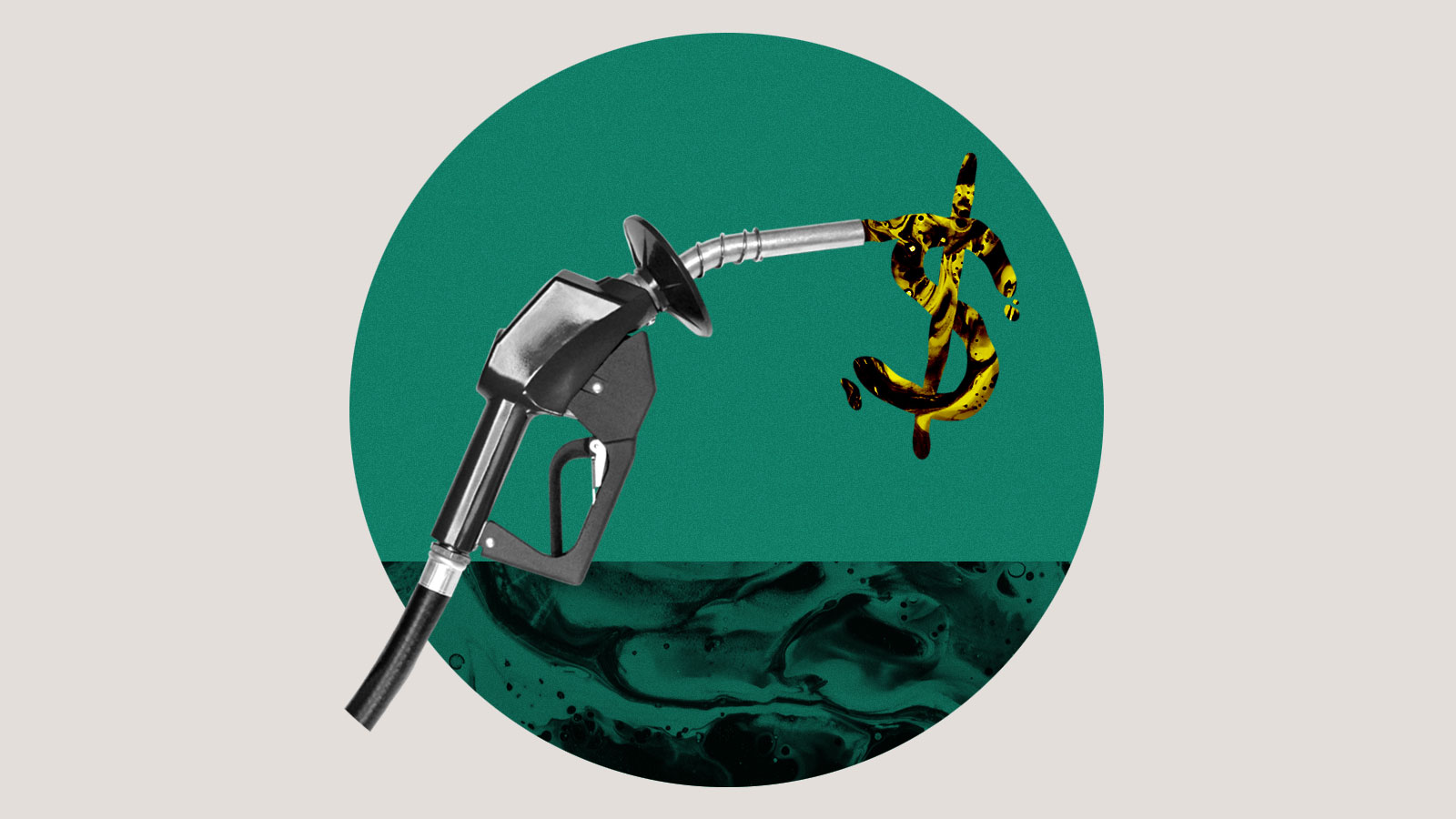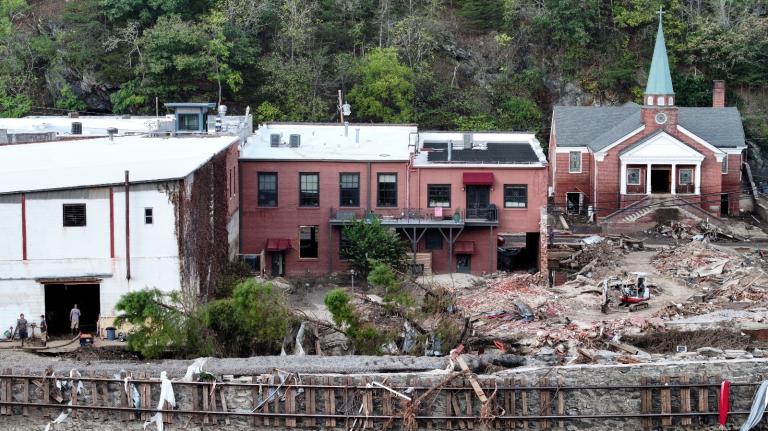It took Washington state more than a decade to put a price on carbon pollution. The effort to make corporations pay for the greenhouse gases they produce started in 2009 with a string of failed bills in the legislature. Frustrated, climate advocates in Washington took the idea directly to voters, putting initiatives on the ballot in 2016 and again in 2018, but both ballot measures flopped — the first defeated by infighting among environmentalists, the second by a $30 million publicity campaign paid for by oil money.
So it was a surprise when the state legislature finally managed to pass a cap-and-trade program in 2021, requiring that Washington slash its carbon emissions nearly in half by 2030, using 1990 levels as the baseline. Even more surprising, perhaps, was that the law was supported by BP, the same oil giant that had spent $13 million to kill one of the ballot initiatives three years earlier. Now the landmark law, the Climate Commitment Act, is under attack, threatened by a repeal effort bankrolled by a hedge-fund manager, and representatives for oil companies say they have nothing to do with it. In fact, oil giants want to keep it alive.
“We have never been against the Climate Commitment Act,” said Kevin Slagle, vice president of communications for the Western States Petroleum Association, a lobbying group that represents oil companies including ExxonMobil, Chevron, and Shell.
In 2023, its first year in operation, the state’s program generated more than $2 billion for projects to clean up transportation, shift to clean energy, and help communities adapt to the effects of a changing climate. But this fall, voters will get a chance to shut it all down. A ballot initiative started by Brian Heywood, a hedge fund manager exasperated with Washington state’s taxes and liberal politics, would kill the law and block the state from ever instituting a cap-and-trade program again.
The existing legislation requires companies to buy pollution “permits” at quarterly auctions, a way to encourage emissions reductions and generate money for climate solutions. Heywood argues that the program has helped give the state some of the highest gas prices in the country and says that Governor Jay Inslee and other officials weren’t upfront about its potential effects on consumers. Last month, the state certified that the measure had gathered enough signatures to head to the ballot this fall.
Heywood’s campaign, called “Let’s Go Washington,” raised $7 million last year to qualify a total of six initiatives for the ballot. The proposals would repeal the state’s capital gains tax and reverse policing restrictions, among other things. Some $6 million of that money came from Heywood, but other donors include the state Republican Party and the Washington Bankers Association. The closest it gets to oil money is a $25,000 contribution from Five Point Capital, a private investment firm in Houston with a focus on oil, natural gas, and water infrastructure. The newly formed “No on 2117” committee opposing Heywood’s initiative has raised $1 million so far this year from the co-founder of Tableau Software, Chris Stolte, plus a $1,500 contribution attributed to Trudi Inslee, the governor’s wife.
While the Western States Petroleum Association isn’t backing the repeal, that doesn’t mean oil companies are happy with the current program. Slagle describes it as broken because the auctions have yielded high prices for pollution permits. His lobbying group has been releasing advertisements that align with Heywood’s message, connecting the climate law to high gas prices. It’s hard to know exactly how much the program has driven up prices, but estimates range from about a quarter to 50 cents a gallon, depending on whom you ask.
Slagle doesn’t agree with Heywood’s approach, though: He wants to work with legislators to address these shortcomings, not throw the law out. “I think what’s missed is that this can be solved without an initiative, right?” Slagle said. “This is what we’re saying. We’re actually in the middle of this, saying, ‘Hey, let’s fix this program.’”
BP, which left the Western States Petroleum Association in 2020 over the trade group’s opposition to certain climate policies in Washington state, is also in favor of keeping the Climate Commitment Act alive. “We believe that the market-based, economy-wide carbon pricing program will work, and we oppose the initiative to overturn it,” a spokesperson said in an email to Grist.
The stakes of the repeal are high: Eliminating the cap-and-invest program would rip a $5 billion hole in the state’s transportation budget, taking away free public transit rides for young people, funding for bus routes, and more. The legislature would have to rework the budget, making tough calls on what bridges they want to replace and what roads they’ll have to close because they can’t be repaired, said Lennon Bronsema, vice president of campaigns at the Washington Conservation Action, a nonprofit that’s part of the No on 2117 committee.

Voting down the law would also take away funding for improving air quality in the state’s most polluted communities. “Those people who want to repeal the Climate Commitment Act are going to try to foist down our throats, and our kids’ lungs, more pollution,” said Governor Inslee in comments to the press last month. “They want to destroy our protection for our kids’ breathing.” And it would add more carbon to the atmosphere as the state struggles with the effects of climate change: freak heat waves, unusually large and destructive forest fires, and declining snowpack on mountains, a key water source for the region.
The repeal could have repercussions at the national level, too. New York recently unveiled plans for a cap-and-invest program, and officials are monitoring the backlash in Washington state. “If this repeal initiative succeeds, it would be a blow to that momentum,” said Caroline Jones, a senior analyst at the Environmental Defense Fund. Last year, an Environmental Defense Fund analysis found that the United States can’t meet its international commitments under the Paris Agreement without follow-through from states on their goals. Washington is one of the few states on track to meet its carbon-cutting targets, thanks largely to the Climate Commitment Act, Jones said.
So how did the state end up with a law that Jones considers a “gold standard” for state climate policy — and also something that oil companies support?
For the oil industry, part of the appeal lies in the law’s exemptions. Since BP and other crude refiners fall under the category of “emissions-intensive, trade-exposed” industries, they get some pollution permits free, making it cheaper to comply with the law. When the cap-and-invest program was rolled out, about 50 percent of the credits were handed out to major polluters to use, said Caitlin Krenn, a climate and clean energy campaign manager at Washington Conservation Action.
Refineries get 100 percent of their allowances at no cost for the first four years of the program — after that, it’ll go down to 97 percent. That’s because of fears that these facilities would relocate elsewhere if Washington put strict regulations on them. But the fuel suppliers of gas and diesel, which might be owned by the same company that operates a refinery, don’t get any credits for free, Krenn said.
After the Climate Commitment Act passed in 2021, BP, which owns the state’s largest oil refinery near Bellingham, spent about $270 million on efficiency upgrades at its facility, estimated to reduce the refinery’s emissions by 7 percent. Cutting its emissions earlier than necessary gave BP the leeway to bank, trade, or sell its allowances. “The Climate Commitment Act rewards us for that. So, it’s not just a stick. It’s also a carrot,” Tom Wolf, a BP government relations manager for the West Coast, told the Seattle Times several months after Inslee signed the legislation into law. “We were doing this anyway … but there’s no doubt that it [the act] makes it even better.”
If the Climate Commitment Act gets shot down in November, it would also make it hard for companies to plan for the future. “If the program disappeared, then we’re kind of back at square one,” said Slagle, of the Western States Petroleum Association. “And so then, what might happen down the road?”
Businesses have long advocated for a market-based approach to climate policy instead of what they see as heavy-handed regulatory measures. That’s part of the reason the Climate Commitment Act ended up structured as it is, with prices set at auctions and polluters able to buy and sell permits.
“It is a solution that is market-based, right? That is what business needed to have some predictability around this,” Bronsema said. “The alternative is an incredibly heavy hammer from the government that might bring down emissions but isn’t going to help provide all the benefits that the Climate Commitment Act does.”
What the oil industry doesn’t like about the current program is the costs. At the first auction a year ago, the price of emitting a ton of carbon landed at $49, nearly double the average price in California’s cap-and-trade market at the time. Over the course of the year, the price rose to $63 a ton, triggering extra “emergency” auctions meant to ensure businesses can access enough allowances at reasonable prices.
Washington is currently pursuing linking its carbon market with ones in California and Quebec, a move Slagle favors since it’s likely to bring down the cost of allowances. That whole process, though, may be getting slowed down by the repeal initiative.
Early polling shows that proponents of the repeal, Initiative 2117, have some convincing to do. In a poll released last October, 41 percent of Washingtonians would vote yes on the repeal versus 49 percent who would vote it down. That leaves almost 10 percent undecided, and historically, those voters in the state have tended to reject initiatives, according to analysis by Washington Conservation Action. Washington politics has changed since the late 1990s and mid-2000s, when voters approved initiatives to get rid of vehicle taxes and limit property taxes, sponsored by anti-tax advocate Tim Eyman.
“People really want to know, like, ‘This is a good idea to repeal this,’” Bronsema said. “And I think we have a strong case that it’s not a great idea.”




